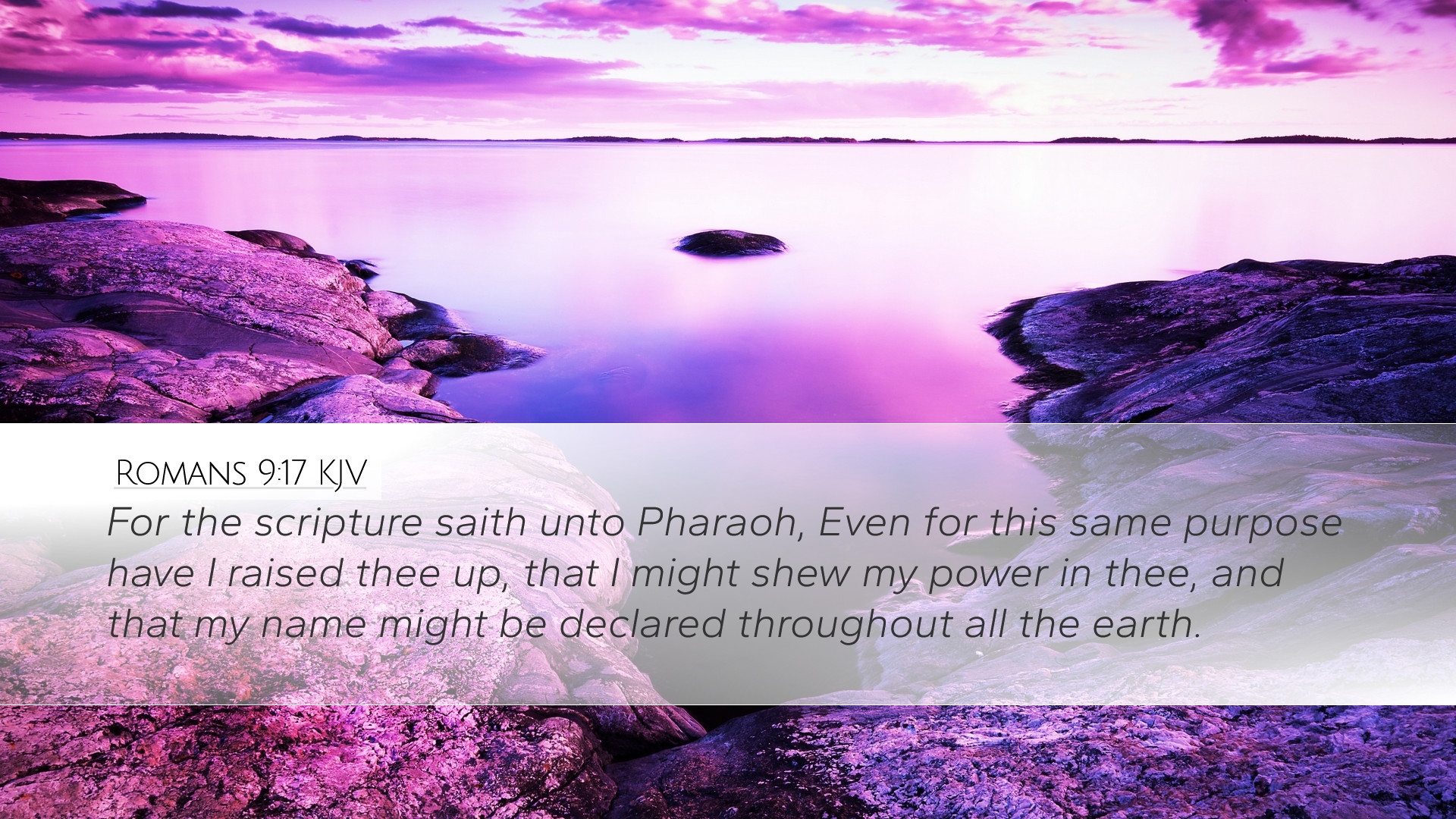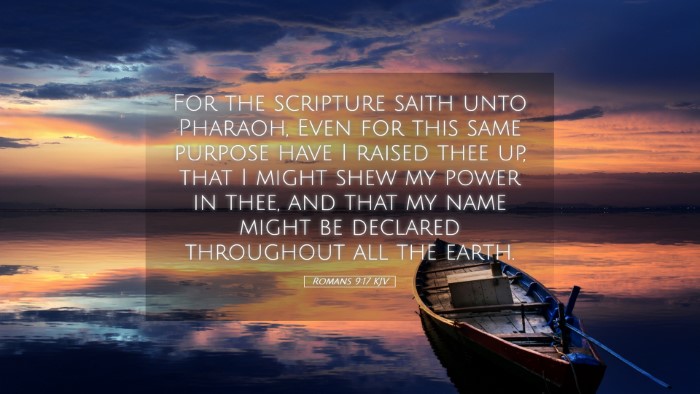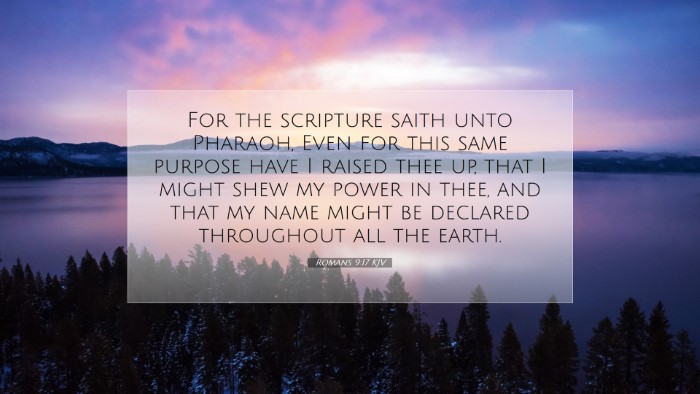Commentary on Romans 9:17
Romans 9:17 states, "For the Scripture saith unto Pharaoh, Even for this same purpose have I raised thee up, that I might show my power in thee, and that my name might be declared throughout all the earth." This verse serves as a pivotal point in Paul's discussion of God's sovereignty and the doctrine of election.
Contextual Background
In the broader context of Romans 9, Paul addresses the plight of Israel, their unbelief, and the implications of God's election. He emphasizes the distinction between physical descent and spiritual inheritance. Romans 9:17 highlights God's sovereign choice in raising up Pharaoh, illustrating that God's divine will often works through individuals to fulfill His purposes.
The Sovereignty of God
Matthew Henry notes that this verse underscores the absolute sovereignty of God. He points out that God's raising of Pharaoh was to demonstrate His power and to serve as a means of glorifying His name. Henry emphasizes that God does not act randomly; rather, every event fits into His grand design.
Pharaoh's Role in God's Plan
Albert Barnes elaborates on the significance of Pharaoh's role, stating that his hardening was intentional on God’s part to magnify His power. Pharaoh became an instrument through which God displayed His Almighty power, a notion that follows the biblical theme of God using the weak and the rebellious to accomplish His sovereign will.
The Purpose of Election
Adam Clarke draws attention to the purpose behind God raising Pharaoh. He states that God's purpose was twofold: to manifest His power and to communicate His glory to the nations. This act serves as a reminder that God's purposes extend beyond immediate circumstances and have eternal implications.
Theological Implications
The theological ramifications of this verse are crucial for understanding the nature of salvation and divine election. Paul emphasizes that God's choice does not rest on human merit but is purely an expression of His will. This aligns with the larger biblical narrative where God's choices disrupt human expectations and bring about His sovereign will.
Human Responsibility and Divine Sovereignty
Though God raised up Pharaoh for His purposes, there remains the tension between divine sovereignty and human responsibility. Paul teaches that God, in His sovereignty, orchestrates events while still holding individuals accountable for their actions. In this light, the hardened heart of Pharaoh was a result of his own rebellion, yet it also fulfilled God's divine plan.
Illustration of God’s Power
In exploring the narrative of Exodus, Henry points out that the plagues served as direct demonstrations of God’s supremacy over Egyptian gods. God’s confrontation with Pharaoh, by raising him to kingship, was not just an exercise of power but also an opportunity to showcase His might and faithfulness to His people.
The Global Declaration of God’s Name
Barnes emphasizes that God's actions in history serve a purpose beyond the immediate context: they are intended for the declaration of His name throughout the earth. This serves as a missiological perspective, where the acts of God in Pharaoh's life were intended not only for Israel's deliverance but for the recognition of God amongst all nations.
Reflection for Believers
For pastors and theologians, Romans 9:17 encourages reflection on God’s sovereignty in their own lives and ministries. As God established His will through Pharaoh, so can He use believers as instruments of His plan today. Understanding this principle fosters a reliance on God’s power rather than personal abilities, echoing Paul’s message of strength in weakness.
Conclusion
In conclusion, Romans 9:17 is a profound statement on divine sovereignty and the purpose of God’s actions in history. Drawing from the insights of Matthew Henry, Albert Barnes, and Adam Clarke, we see that God’s raising up of Pharaoh was far more than a historical event; it was a demonstration of His sovereignty, a declaration of His name, and a call to recognize His power. This verse serves as a reminder of God's unchanging purpose, challenging believers to trust in His plan, even when circumstances seem contrary.


